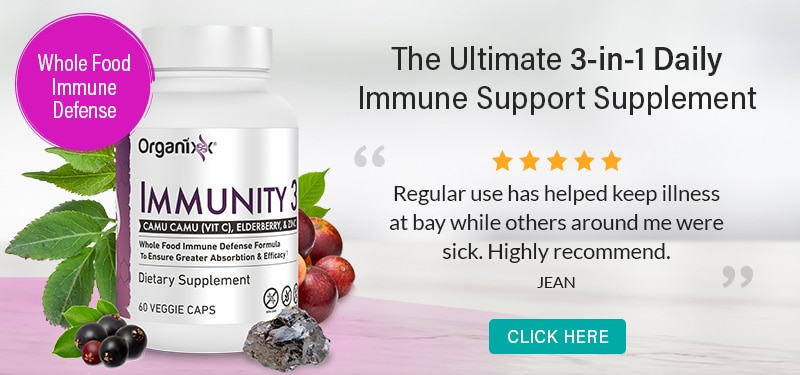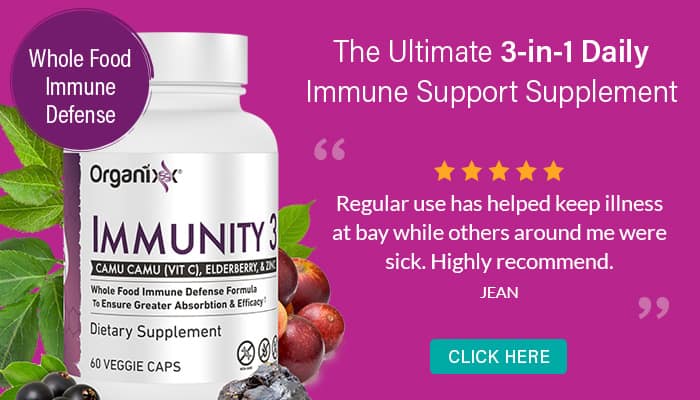Zinc is the second-most abundant metal in your body, with a total of 2-4 grams distributed throughout your body’s tissues [1]. Present in every cell, it was first identified as an essential mineral back in 1963 [2]. Zinc appears to be required for nearly every fundamental cellular activity, including cell proliferation and differentiation, RNA and DNA synthesis, as well as stabilization of various cell structures including cell membranes [3].
But does zinc help your immune system? During cold & flu season, and especially in this era of Covid, we’re all extra concerned about immune function. You may even have heard about the importance of certain nutrients such as vitamin C and zinc for immunity. In this article, we’re delving into the connection between zinc deficiency and immune function, who’s most at risk for zinc deficiency, and 6 key ways that zinc influences immune system response.
What Function Does Zinc Have in the Body?
Zinc is intimately involved in many critical biochemical functions. For instance, it is estimated that over 300 enzymes and nearly 2000 transcription factors in our body require zinc to function properly.
Transcription factors are proteins that control the rate of conversion of stored genetic information in DNA to so-called “messenger RNA” (mRNA). Every protein in our body is made using a specific mRNA as a blueprint. Proteins encoded by up to 10% of our DNA may potentially interact with zinc.
Zinc Deficiency Is a Global Problem
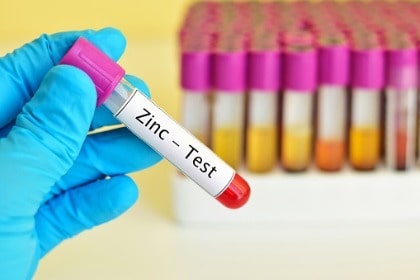
Unfortunately, zinc deficiency affects up to 2 billion people worldwide, especially in the developing world [4,5]. According to the World Health Organization (WHO), zinc deficiency is the fifth leading cause of death and illness in developing countries.
In the U.S., roughly 12% of the population – and perhaps as many as 40% of the elderly – appear to be at risk for zinc deficiency, likely because of a poor diet and/or poor zinc absorption in the gut. Studies confirm that zinc levels decline with age.
Indeed, there are striking similarities between zinc deficiency and aging, especially with regards to immune status [6]. Unfortunately, most people are unaware of their zinc status, either because they have never been tested, or because existing tests are not very reliable.
Signs of Zinc Deficiency
Some of the typical symptoms of zinc deficiency include:
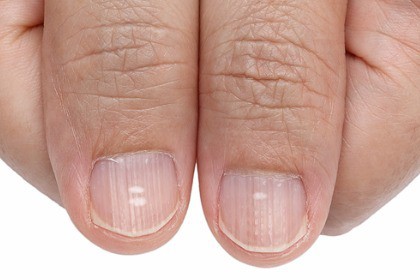
- impaired immunity
- stunted growth
- rough skin
- reduced production of sex hormones in men
- cognitive impairment or brain fog
- white spots on fingernails
Low levels of zinc consumption have also been linked to greater DNA damage, both in laboratory animals and in healthy men [7,8,9]. This is not surprising, since zinc seems to play a critical role in maintaining DNA integrity and is known to be an essential component of multiple proteins involved in protection against oxidative stress and in carrying out DNA damage repair.
Who Is Most at Risk for Zinc Deficiency?
Certain groups of people are more likely than others to be deficient in zinc [10]. This includes:
- People who have undergone gastrointestinal surgery (e.g., weight loss surgery) or who suffer from digestive disorders, such as ulcerative colitis or Crohn’s disease. These conditions reduce zinc absorption, along with increasing zinc loss via urine.
- People who are chronically malnourished, such as people with anorexia and bulimia.
- People who follow a vegan or vegetarian diet, since meat and dairy products are an abundant natural source of zinc. Also, whole grains contain phytic acid, a natural compound that prevents zinc (as well as iron and calcium) from being fully absorbed by the body [11]. For this reason, vegans and vegetarians might need to consume as much as 50% more zinc than the recommended daily amounts (RDAs).
- Older infants who are exclusively breastfed, because breast milk does not have enough zinc for infants over 6 months of age.
- People with an addiction to alcohol, as alcoholic drinks also reduce zinc absorption and increase loss via urine. Also, some alcoholics may consume fewer nutrients in their diet.
- People with sickle cell disease.
- People with chronic kidney disease.
How Much Zinc Does Your Body Need?
Since zinc cannot be made or stored in your body, you need to consume it regularly via your diet or supplements. Recommended daily intake depends on your:
- age
- gender
- weight
- phytate content of diet (i.e., are you consuming lots of high-phytate foods such as grains, nuts, and legumes?)
- lifestyle habits such as vegetarianism, veganism, and alcohol consumption
In the U.S., the recommended daily allowance (RDA) for zinc is 11 mg for adult men and 8 mg for adult women, with slightly higher doses recommended for pregnant and breastfeeding women [12].
Keep in mind, however, that for the most part, the Recommended Daily Allowance represents the minimum quantity of a substance that a person needs to prevent diseases directly related to that deficiency. The Upper Intake limit (UI) of zinc for both men and women is 34 mg, and 40 mg for pregnant and nursing mothers.
The Best Food Sources of Zinc
In general, you can get enough zinc for your body’s needs by eating foods such as:

- oysters (the best source of zinc)
- lean red meat, poultry
- seafood including crab and lobsters
- eggs
- fortified breakfast cereals
- beans
- nuts & seeds
- whole grains
- dairy products
If you follow a plant-based diet, it’s important to be aware that zinc from plant sources is not as easily absorbed by the body as zinc from animal sources. Beans, nuts, seeds, and grains are also high in phytates which can impede zinc absorption.
How Does Zinc Help the Immune System?
Now that we’ve reviewed the key roles zinc plays in the body, some common zinc deficiency causes, and some of the best food sources of zinc, let’s dig into the specifics of zinc and its role in immunity and inflammation.
Zinc plays a critical role in your immune system’s readiness to fight infections and disease. This micronutrient is important for the development, maintenance, and function of immune cells of both the innate and adaptive immune systems [13].
Additionally, zinc acts as a signaling molecule between immune cells [14]. Not surprisingly, zinc deficiency compromises immune function and results in increased susceptibility to infections, along with higher levels of inflammation [15].

Zinc deficiency has been shown to alter the development, number, and function of certain immune system cells: neutrophils, dendritic cells, mast cells, macrophages, T-, and B-cells [16,17].
On the other hand, zinc supplementation restores most aspects of immunity and suppresses inflammation. For instance, zinc supplements have been shown to reduce the severity and duration of viral infections, including the common cold [18,19]. Zinc is also an effective antioxidant and anti-inflammatory agent.
6 Key Ways That Zinc Impacts Immune System Response
There are six important ways zinc can interact with and influence specific components of your immune system.
#1 – Zinc Helps to Maintain Membrane Barrier Structure and Function
Zinc contributes to our innate defense (i.e., your immunity) by maintaining membrane barrier structure and function – especially in vulnerable areas like the lung and intestine. In laboratory experiments, zinc supplementation has been shown to preserve and restore membrane function and structure [20].
Zinc is also an integral component of the skin, where it stabilizes cell membranes and acts as an essential component for transcription factors and enzymes that help to maintain skin integrity and heal wounds. Additionally, zinc confers resistance against cellular damage caused by reactive oxygen species and bacterial toxins [21].

This is why zinc deficiency may result in delayed wound healing, particularly in elderly people who have a poor nutritional status. Topical, local zinc therapy appears to be better than oral therapy for wound healing by enhancing local defense systems and promoting wound epithelialization (skin growth) [22].
#2 – Zinc is Essential for Neutrophil Function
White blood cells known as neutrophils – which have powerful antimicrobial actions – protect your body against foreign invaders [23]. They migrate to wound sites or sites of infection, a process known as chemotaxis. There, they literally attack and swallow invading microorganisms (a process known as phagocytosis) before subjecting them to various reactive oxygen species (ROS) and antimicrobial proteins to kill them.
Zinc deficiency reduces both chemotaxis and phagocytosis, whereas zinc supplementation restores them. Bacterial killing by ROS after phagocytosis and other antibacterial actions of neutrophils have also been shown to be inhibited by zinc deficiency [24].
#3 – Zinc Regulates Macrophage Functions
Macrophages are a type of white blood cell that plays a key role in the innate immune system. Their job is to literally engulf and digest cellular debris, foreign substances, microbes, cancer cells, and anything else that cannot be identified as healthy host cells – a process known as phagocytosis.
Zinc has been shown to regulate the many immune functions of macrophages in a number of ways. For example, the levels of zinc inside macrophages has been shown to influence their ability to carry out phagocytosis, for example in response to invading bacteria [25,26].

Alcohol abuse is associated with significant zinc deficiency in macrophages in lung alveoli. Alveoli are tiny air sacs in the lungs in which gaseous exchange takes place between the air we breathe and our blood.
This deficiency has been shown to result in impaired immune function, at least partly because of reduced antibacterial phagocytosis by macrophages [27]. Treating these alveolar macrophages with zinc was seen to significantly improve their phagocytic capacity and restore immunity.
Zinc also plays an essential role in other macrophage functions, including oxidative burst and inflammatory signaling [28].
#4 – Zinc Boosts Langerhans Cell Numbers and Function
Dendritic cells are an essential component of the immune system, acting as messengers between the innate and adaptive immune systems. Dendritic cells can be found in tissues in your body that are in contact with the outside world, such as the skin (which contain specialized dendritic cells known as Langerhans cells) and the inner lining of your nose, lungs, stomach and intestines. Zinc is essential for dendritic cell function [29].
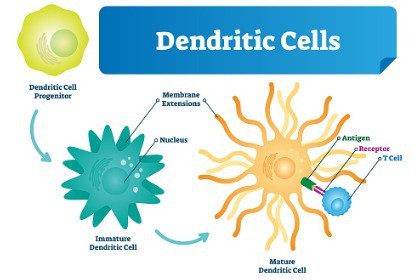
Dendritic cells patrol the bloodstream as immature cells, differentiating into mature cells when activated by exposure to an antigen – which is any substance that causes the immune system to make antibodies against it.
Mature dendritic cells break down antigens into small proteins known as peptides, then migrate to lymph nodes where they “present” these peptides to other immune cells known as helper T cells, initiating the adaptive immune response. They also interact with B cells, helping to trigger antibody formation [30].
Langerhans cells are dendritic cells in your skin that coordinate similar immune responses against foreign antigens, including those carried by disease-causing organisms [31].
Zinc in our diet is absorbed in the intestine by a so-called “transporter” protein known as Zip4. Not surprisingly, people with hereditary mutations in Zip4 show severe symptoms of zinc deficiency, including poor immune function and recurring infections [32].
The numbers of Langerhans cells have been shown to be reduced in the skin of people with Zip4 mutations. These people develop a disorder known as acrodermatitis enteropathica, whose symptoms include alopecia (a condition that causes hair to fall out in small patches), diarrhea, and skin lesions. Promisingly, oral zinc supplementation has been shown to restore the numbers of Langerhans cells and improve clinical symptoms in these patients.
#5 – Zinc Is Important for T Cell Maturation and Function
T cells, also known as T lymphocytes, are a type of white blood cell that is an essential component of your immune system. Along with B cells, T cells help to determine the specificity of your body’s immune responses to various antigens.
There are two types of T cells:
- CD4+ “helper” T cells which assist B cells in making antibodies, and
- CD8+ “cytotoxic” T cells, whose function is to trigger cell death in cells infected with viruses or other pathogens, or tumor cells.
During the adaptive immune response, helper and cytotoxic T cells combine to create an immunological memory that is able to respond rapidly and effectively to any pathogen that our body has previously encountered [33].
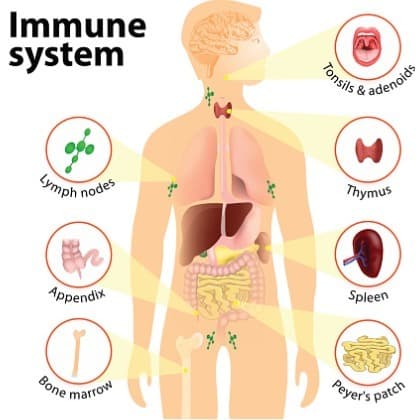
T cells mature in the thymus, a specialized lymphoid organ of the immune system. In humans and other mammals, zinc deficiency has been shown to cause atrophy or wasting away of the thymus, along with a reduction in the numbers of mature T-cells. Additionally, zinc status has been shown to be important for T cell activation and function [34].
Laboratory studies show that zinc supplementation in deficient animals restores normal T cell function [35]. Even a modest zinc deficiency was seen to change the expression of up to 1,200 genes related to the survival, activation, and proliferation of T cells [36].
T cell numbers and function are known to decline with age. In a randomized, double-blind, placebo-controlled study of elderly men and women, zinc supplementation was shown to significantly increase the numbers of both naïve and proliferating T cells [37].
#6 – Zinc Is Important for B Cell Development and Antibody Production
B cells are immune cells that make antibodies in response to antigens, which bind to proteins on their surface known as antigen receptors. B cells also convert antigens into peptides that activate helper T cells.
Signals from a bound antigen and from a helper T cell cause an individual B cell to proliferate and turn into a so-called plasma cell, which then generates a specific antibody against the bound antigen.
In laboratory experiments, zinc deficiency was shown to slow down B cell development. Zinc also significantly reduced antibody production, while zinc supplementation was seen to at least partially restore antibody levels and function [38,39,40].
In a recent study, the DNA of patients from five unrelated families – with symptoms that included B cell loss, low antibody levels, and skin disease – were examined and compared. Interestingly, in the study researchers found that all patients had mutations in the gene encoding the protein Zip7, which controls the levels of zinc inside the body’s cells [41]. They concluded that these Zip7 mutations, which led to reductions in zinc levels, likely interfered with proper B cell development in these patients.
Low Zinc Levels Increase Risk of Death in COVID-19 Patients
The ongoing COVID-19 pandemic has accounted for nearly 94 million cases across 188 countries and territories, resulting in over 2 million deaths as of January 2020 [42]. Given zinc’s central role in immune system function, is there a connection between zinc status and COVID outcomes?
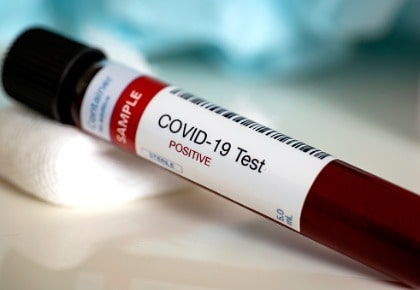
Indeed, many COVID-19 patients have been shown to be zinc deficient [43]. Perhaps not surprisingly, these patients tend to:
- develop more complications
- stay in hospital longer
- have a greater risk of in-hospital death
In a recent study, fasting plasma zinc levels were measured in 249 COVID-19 patients who had been admitted to a hospital in Barcelona, Spain, between March and April 2020 [44].
Patients who had low zinc levels upon admission were found to have higher levels of inflammation and were also more likely to die from complications related to COVID-19.
The study authors concluded that [45]:
“Our study demonstrates a correlation between serum zinc levels and COVID-19 outcome. Serum zinc levels lower than 50 µg/dl at admission correlated with worse clinical presentation, longer time to reach stability and higher mortality. Our in vitro results indicate that low zinc levels favor viral expansion in SARS-CoV2 infected cells.”
Specifically, zinc levels lower than 50mcg/dl at admission were associated with a 2.3-fold greater increased risk of in-hospital death compared with patients whose zinc levels were 50mcg/dl or higher.
Health Risks of Excessive Zinc
While getting adequate zinc through diet and supplementation is beneficial, zinc toxicity can be both acute and chronic.
Symptoms of acute toxicity associated with high zinc consumption include:
- nausea
- vomiting
- loss of appetite
- abdominal cramps
- diarrhea
- headaches
Results from the AREDS study indicate that chronically high zinc consumption may adversely affect urinary physiology [46].
Zinc supplements also have the potential to interact with several types of medications, including certain antibiotics; penicillamine, a drug used to treat rheumatoid arthritis; and certain diuretics. As always, we recommend consulting with your healthcare provider before starting any new supplements, especially if you are pregnant, nursing, or have any existing health conditions.
Support a Strong Immune System With Organixx Immunity 3
Immunity 3 from Organixx provides you with 15 mg of zinc from two forms (zinc glucinate and zinc arginate) for better absorption and higher tolerability. Organic camu camu (vitamin C) and elderberry extract round out the trio of natural immune-supporting nutrients in Immunity 3.
Organixx Immunity 3 gives you natural immune system support against harmful viruses & bacteria, including the common cold, influenza, and sinusitis. This ultimate 3-in-1 immune support supplement provides 3 powerhouse nutrients in one convenient daily formula: organic camu camu (vitamin C), organic elderberry & 2 forms of zinc.
